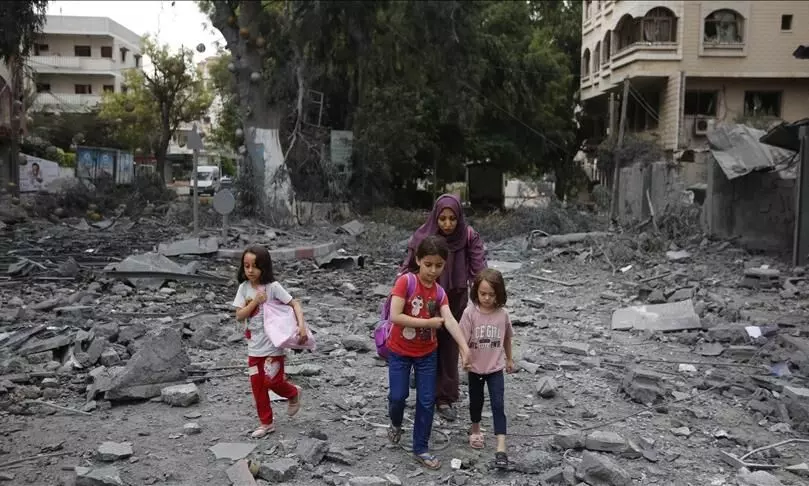
Hostage release not until Friday amid continued Israeli airstrikes in Gaza
text_fieldsThe four-day truce deal between Israel and Hamas, mediated by Qatar and Egypt for the release of hostages from both sides, will only begin on Friday, as Israel and US officials have cited the yet-to-be-finalized plan for logistics, families anxiously waiting for the return of their loved ones in despair.
As the wait continued, Israeli airstrikes and artillery targeted Khan Younis in southern Gaza, adding to the ongoing violence that has plagued the region. Simultaneously, tensions escalated on Israel's northern border with Lebanon following reports of Hezbollah losing five fighters, including the son of the head of the militant group's parliamentary bloc.
Israeli national security adviser Tzachi Hanegbi reassured that the release of at least 50 Israeli and foreign hostages held by Hamas is progressing. Still, the start date remains set for Friday at the earliest.
The delay in the truce and release is a blow to families yearning for their relatives' return and to the over two million Palestinians in Gaza enduring relentless bombardments and shortages of essential resources.
The intricate deal negotiated by Israel and Hamas involves a four-day truce during which at least 50 hostages, taken in the October 7 attacks, would be released. In return, Israel committed to releasing at least 150 Palestinian women and children from its jails and allowing increased humanitarian aid into Gaza. The agreement also includes a provision where additional days of ceasefire would be granted for every 10 hostages released.
The delay has sparked uncertainty, with conflicting reports suggesting a 24-hour delay due to unsigned agreements between Hamas and mediator Qatar. While Israel's Prime Minister Benjamin Netanyahu backed the agreement, he emphasized its temporariness, vowing to continue the campaign against Hamas.
The situation on the ground remains dire, with the Gaza Strip enduring relentless bombardments, widespread casualties, and humanitarian crises. The Red Cross is expected to visit the remaining hostages in Gaza once the truce is in effect.
Amid the delay, the Israel-Hamas conflict has spilt over into Lebanon, with daily exchanges of fire along the border. Hezbollah's announcement of casualties further raises concerns about the conflict's potential to escalate into a broader regional conflagration.
As the world awaits the implementation of the truce and the release of hostages, the volatile situation in the region continues to evolve, leaving families, civilians, and international observers grappling with uncertainty and the devastating consequences of the prolonged conflict.






















